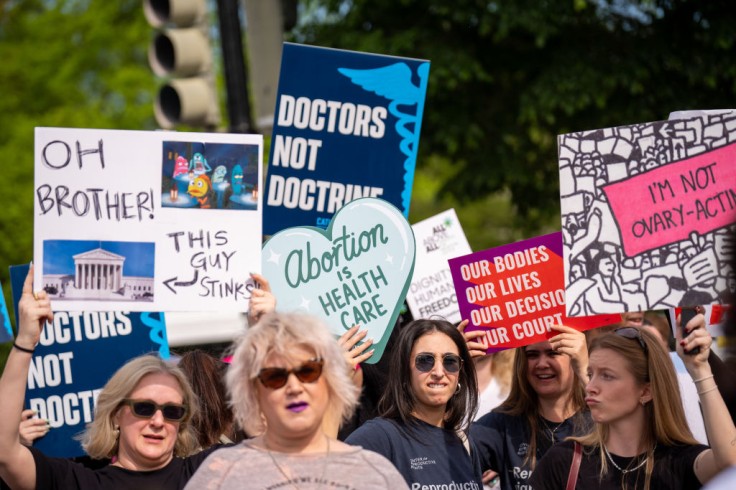
The Supreme Court faced division on Wednesday as it grappled with whether aspects of Idaho's near total abortion ban unlawfully contradict a federal law aimed at ensuring specific standards for emergency medical care, especially for pregnant women.
State Ban Hinder Life-Saving Treatment For Pregnant Women in Need
Certain conservative justices, constituting a 6-3 majority, expressed doubt about the Biden administration's lawsuit, contending that the state ban limits potentially life-saving treatment for women experiencing pregnancy complications.
In contrast, liberal members of the court appeared to support the administration's stance. The justices are presently discussing an appeal brought forth by Idaho officials demanding a lawsuit filed by the Biden administration concerning abortion access in emergency scenarios.
Enacted in 2020, the state abortion law, known as the Defense of Life Act, contains a provision stating it would take effect if Roe v. Wade were overturned.
When the Supreme Court somewhat rolled back Roe in 2022, the state law came into effect, enforcing criminal penalties, including up to five years in prison, for those performing abortions.
The federal government sued, leading to a federal judge in August 2022 blocking the state from applying provisions related to medical care necessary under the federal Emergency Medical Treatment and Labor Act (EMTALA).
EMTALA, lawful in 1986, orders suitable emergency room care, with the Biden administration arguing that this care should surround abortions in certain situations. The law applies to any hospital getting federal funding under Medicare.
Initially brought forth by the Justice Department, the case against Idaho grapples that the state's abortion legislation counter the 1986 Emergency Medical Treatment and Active Labor Act, typically known as EMTALA.
This law enforces that hospitals accepting Medicare must give emergency medical care to all patients, regardless of their ability to pay, and since almost all hospitals accept Medicare, the scope of this requirement is comprehensive.
Despite an omission in the Idaho law for situations where an abortion is essential to safeguard the life of the childbearing woman, the scope of this omission was investigated during oral arguments.
Read Also: Arizona Republicans Evaluate Options to Block Possible Ballot Initiative Advocating Abortion Rights this Fall
Justices Question Interpretation of Federal Law on Health Care
Liberal justices Elena Kagan and Sonia Sotomayor raised questions about the interpretation of federal law, recommending that medical conditions posing important health danger should cause the duty of hospitals to sustain patients, even if forthcoming death is not immediate.
Idaho's attorney, Joshua Turner, faced challenging inquiries regarding the application of the exception to cases where a woman faces complications that don't necessarily lead to imminent death.
Conservative justices Amy Coney Barrett and Brett Kavanaugh indicated they see Idaho's law as potentially aligning with the requirements of federal law, implying there may not be a conflict.
Conservative Justice Samuel Alito appeared particularly skeptical of the federal government's argument, citing language in the federal law referencing treatment for an "unborn child," a term often used by anti-abortion advocates.
The decision, once made, will not only impact Idaho but also other states like Texas with similar abortion bans that potentially clash with federal law.
The dispute underscores broader legal battles emerging post the 2022 decision to overturn Roe v. Wade, including a case concerning access to mifepristone, a drug commonly used for medication abortions.
Related Article: Arizona Supreme Court Allows 14 Days To Address Issues Before Enforcing Abortion Ban from 1864